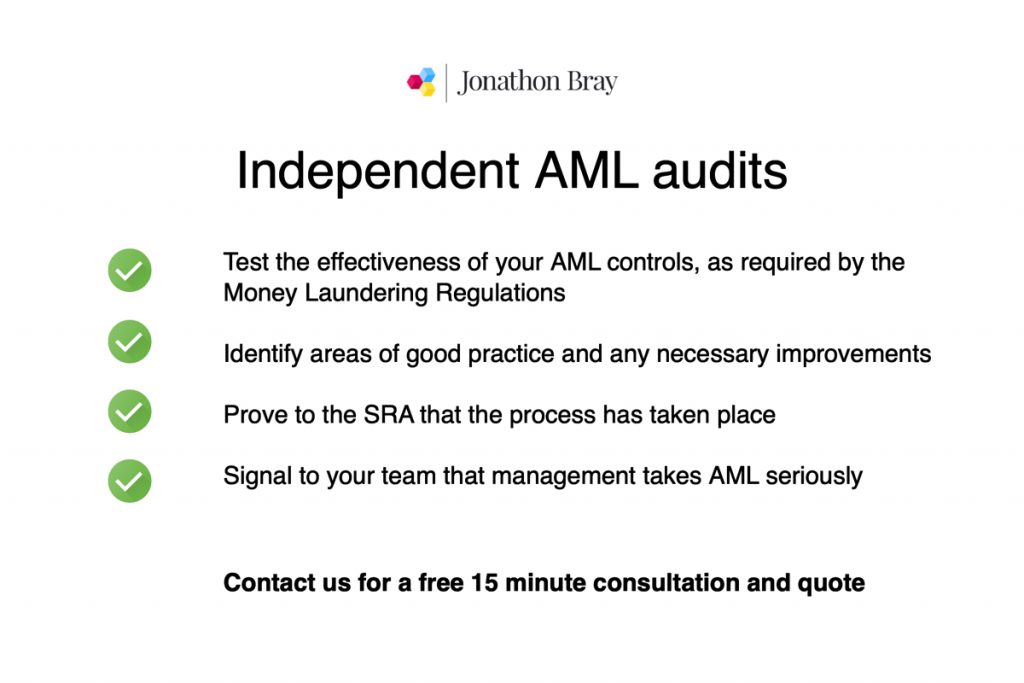Don’t be tempted by this common delay tactic – it will get you struck off
Three solicitors have been struck off in quick succession for strikingly similar offences: misleading their clients about the progress of their case.
Andrew Mark Brett ‘repeatedly’ misled a client over the progress of professional negligence litigation. He pretended that court proceedings and hearings were in progress, knowing that not to be the case. The client’s claim was eventually struck out due to the solicitor’s inaction.
Lesley Wilkinson was similarly struck off for misleading clients about their personal injury cases. Over a three year period, the solicitor strung the clients along when she knew the cases had been struck out. The clients were only alerted when bailiffs appeared to enforce a costs order against them.
Albert Saul Bargery was struck off for forging a court order and email to cover lack of progress on a low value Japanese knotweed case. When the client complained about slow progress, the solicitor (presumably to buy some time) produced a fabricated order purporting to compensate the client. When the client chased for his damages, the solicitor compounded the lie by producing a falsified email showing that he had chased the other side for payment.
In this post, we look at the principals involves and what drives solicitors to make poor ethical decisions.
What can law firms do about it?
What’s happened to my mySRA account?
We’re making your mySRA account more secure. From Monday (12 June), when you log in, you’ll need to register a phone number. We will then send you a code by SMS text or call you to verify your identity every time you access mySRA | Learn more https://t.co/h3UgFajwga pic.twitter.com/Ui7EeXeIVi
— SRA (@sra_solicitors) June 8, 2023
The SRA have decided to introduce an additional layer of verification step to their login procedure in order to make accounts more secure.
Therefore, the first time you log in from 12th June, you will now need to register a phone number for that account.
Each time you log in thereafter, you will need that phone with you as you will be sent a one-time use code by SMS text message. Or you can opt for a phone call to verify you instead.
There will also be no option to ‘remember me’ from 12th June – you will need to follow the above procedure each and every time.
If you wish to create a new bookmark or favourite for this page, you can do so using this link (as all previous ones will become obsolete).
ICYMI: What checks should law firms do on new employees?
We often get asked by law firms about ‘employee screening’. What do we need to check? How far do we need to go?
Regulated law firms are responsible for those they employ. And by extension so are the partners, LLP members or directors.
Employee screening is not an easy process to systemise because it touches on a few different areas, including professional regulation, AML rules and the usual pre-employment checks. It is complicated by the fact that checks may be different depending on the qualification of the individual and which department they will be working in, as well as the firm’s own recruitment policy.
ICYMI: SRA Transparency Rules In 2023 – Is Your Law Firm’s Website Compliant?
Not a new topic, but one certainly worth revisiting because the SRA is, one again, ramping up its website reviews focusing on Transparency Rules compliance.
Last summer they warned us of their intention, and we are seeing firms increasingly receiving communications from the regulator advising them of breaching the rules.
Coming into force in December 2018, the Transparency Rules require all regulated firms to display specified information on their websites, including their SRA number, the SRA digital badge (a mechanism to prove they are a regulated entity), complaints information, costs for certain services, and the qualifications and experience of fee earners.
According to the SRA, the rules are designed to ensure people have accurate and relevant information about a solicitor or firm when they are considering purchasing legal services.
The key aim was to help members of the public and small businesses make informed choices, whilst also improving competition in the legal market.
Despite a recent study suggesting that transparency rules have very little impact the public’s purchasing behaviour (shocked face), regulated law firms are required to adhere to them.
In this post we cover:
- The scope of the rules
- Common mistakes and breaches
- Compliance checklist
- Transparency tips
News and Guidance

SRA Updates
- Updated guidance: The SRA’s approach to financial penalties – Now that the SRA can issue fines up to £25k against individuals and firms (or £50m and £250m respectively for ABSs), this guidance sets out how fines are broadly calculated. The subjective formula uses a combination of seriousness and impact of the conduct to arrive at a ‘penalty bracket’. This can result in a fine linked as a percentage of the accused’s income (100% or more) or turnover (up to 5%), with discretion for mitigating circumstances such as early admissions and cooperation.
- Guidance: Decision-making in disciplinary cases – For the first time, in ‘rare’ cases the SRA will conduct full hearings in front of an SRA-appointed adjudication panel, where:
- it has power to do so,
- the SDT does not have jurisdiction, and either:
- there are material disputes of fact which cannot be determined without a hearing in which the parties are cross-examined, or
- there is an exceptional public interest in matters being ventilated in public.
These hearings may be held in public.
- Legal Futures: SRA “keeping close eye” on law firm consolidators – Interesting article, quoting a conference speech by the SRA’s head of forensic investigations. The article discusses the SRA’s monitoring the activities of law firm consolidators and ‘accumulators’. The SRA is keeping a close eye on these companies, which acquire smaller law firms, to make sure they are following ethical practices. Sellers are being urged to take steps to understand who is buying their firm and what role they will hold in the business. This is particularly important to guard against unlawful access to the client account. It is also a sensible self-preservation precaution if a seller remains in a management role.
- News: Literature review looks at factors influencing the outcomes for Black, Asian and minority ethnic candidates in professional assessments – The first stage of SRA-commissioned research into the ‘attainment gap’ for ethnic minority groups indicates that ‘multiple and complex causes’ may be in play, including:
- The availability of support in education and work for different minority groups
- Perceived barriers and/or opportunities to entry and progression in a given profession, based on characteristics such as social background and ethnicity
- Positive or negative experiences at school, college or university
- Life circumstances, such as socio-economic status
The final report is expected in 2024.
Law Society Updates (may require login)
- Updated practice note: File closure management
- Updated practice note: Price and service transparency
- Updated practice note: Setting up a practice: regulatory requirements
- Updated practice note: Preparing a will when your client is leaving a gift for you, your family or colleagues
- Updated practice note: Appointment of a professional executor
- Insight: Blockchain: legal and regulatory guidance report (3rd edition)
- News: India opens up to foreign solicitors and law firms
Other Updates
- HMRC publishes list of businesses that have failed to comply with Money Laundering Regulations – Public shaming, with its inherent reputation and commercial damage, is becoming a favoured weapon to nudge firms towards AML compliance.
- Updated NCA guidance (June 2023): Guidance on submitting better quality suspicious activity reports (SARs) – Must read guidance for MLROs.
Free webinars

Last session: ‘Ask us anything!’ – watch the recording
Last week’s live webinar was slightly less structured than usual, as the team tackled your burning compliance and AML-related questions.
Topic covered included:
- E-verification tools and how often firms should revisit CDD
- How to end a client relationship
- Outsourcing client onboarding to a central team
- How and when to establish Source of Funds
- How often an independent AML audit is required
- How to update interest policies and the de minimis amount
- Who can sign off qualifying work experience under the SQE
- Submitting DAMLs and SARs to the National Crime Agency
Recording: Click here and use passcode 3rJ+fh1^ (available for 30 days)
Save the date: Frequently-asked AML questions with Thirdfort
We are delighted to be co-hosting this session with our friends at Thirdfort.
Unsurprisingly, we get asked many questions about source of funds, source of wealth, identification of clients, and the like. In the current world of regulation, we find many law firms are very nervous about ‘getting it wrong’ and want to ensure compliance.
In this webinar, our JBL team will be discussing some of these most common compliance queries with input from Thirdfort.
- We will look at the following:
- Source of funds – how far do we need to go? How do I know I’m done?
- Source of funds – is the ‘Bank of Mum and Dad’ low risk?
- Source of wealth – can I take my client’s word for it?
- Risk assessment – do I need to do one at the start of every file?
- Ongoing monitoring – what should this look like in practice?
- Employee screening – we don’t DBS-check all our staff. Should we?
- Independent audit – how often does it need to be done?
- CDD – do I need to verify the identity of all the Directors of a client company?
- CDD – who do I need to verify in a trust?
So come and join us and let us guide you through this maze. And of course, you will have the opportunity to ask any of your burning questions.
Invitations and registration link to follow for clients and newsletter subscribers.
Date and time: 12:00pm on 28 June 2023 via Zoom
SRA and SDT disciplinary decisions

- Mark Hawkridge – fined £18,750 by the SRA (a new record for a fine against an individual solicitor without a referral to the SDT) for client account breaches.
- Andrew Mark Brett – struck off for misleading a client over the progress of ongoing professional negligence litigation.
- Lesley Wilkinson – similarly struck off for misleading clients about their PI cases.
- Sharon Needle – fined £2,000 following drink driving offence.
- Bryan Hunt – experienced private client lawyer rebuked for breaching an undertaking to the Office of the Public Guardian regarding billing errors.
- Laceys – firm fined £4,250 for mistakenly acting in a conflict situation, despite the firm’s COLP recommending that the client take independent legal advice.
- Albert Saul Bargery – struck off for forging a court order and email to cover lack of progress on Japanese knotweed case.
- Nirosha Jayawardena – solicitor, whose lax AML checks led to two property frauds, suspended for 1 month with a condition that she must complete AML training.
- Karisha Marie Young – non-lawyer banned from the profession following theft of her law firm employer’s cheque book.










